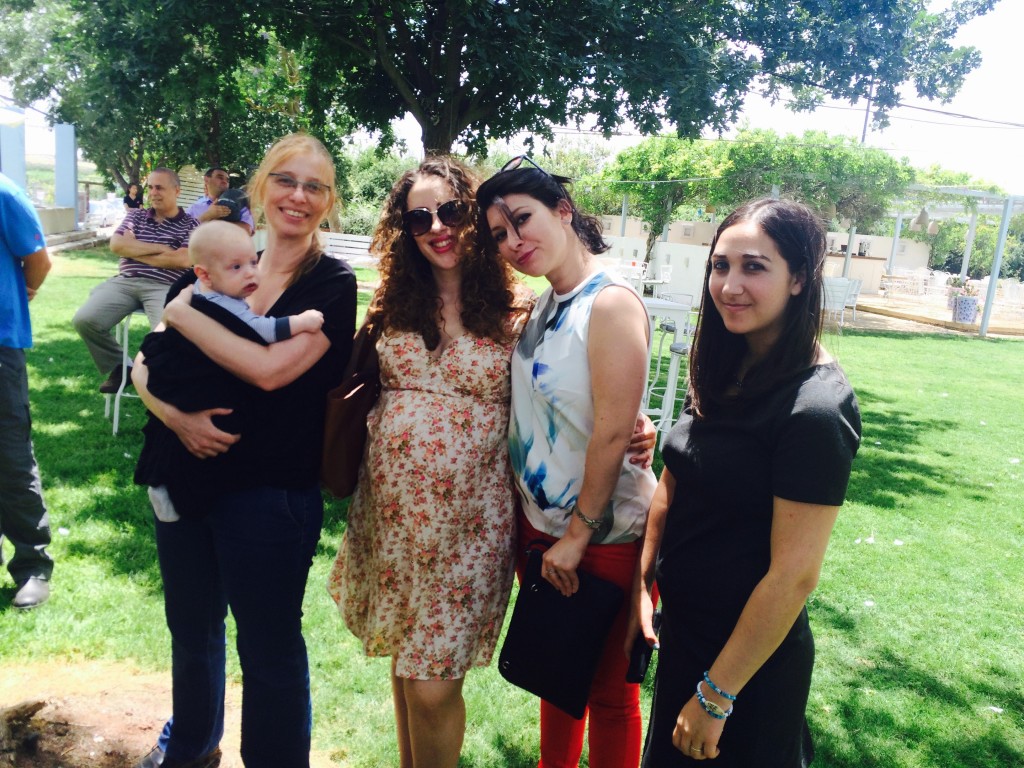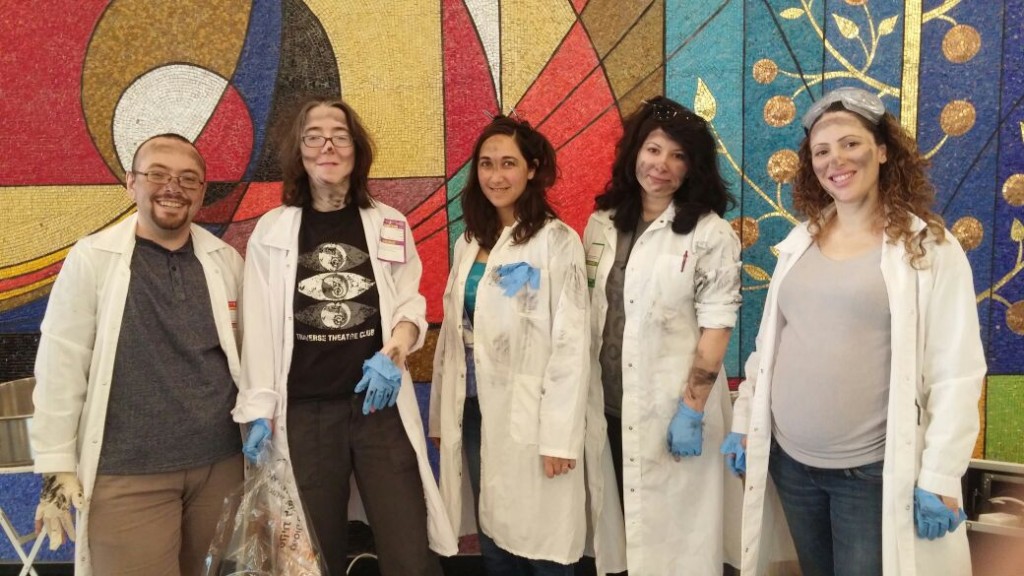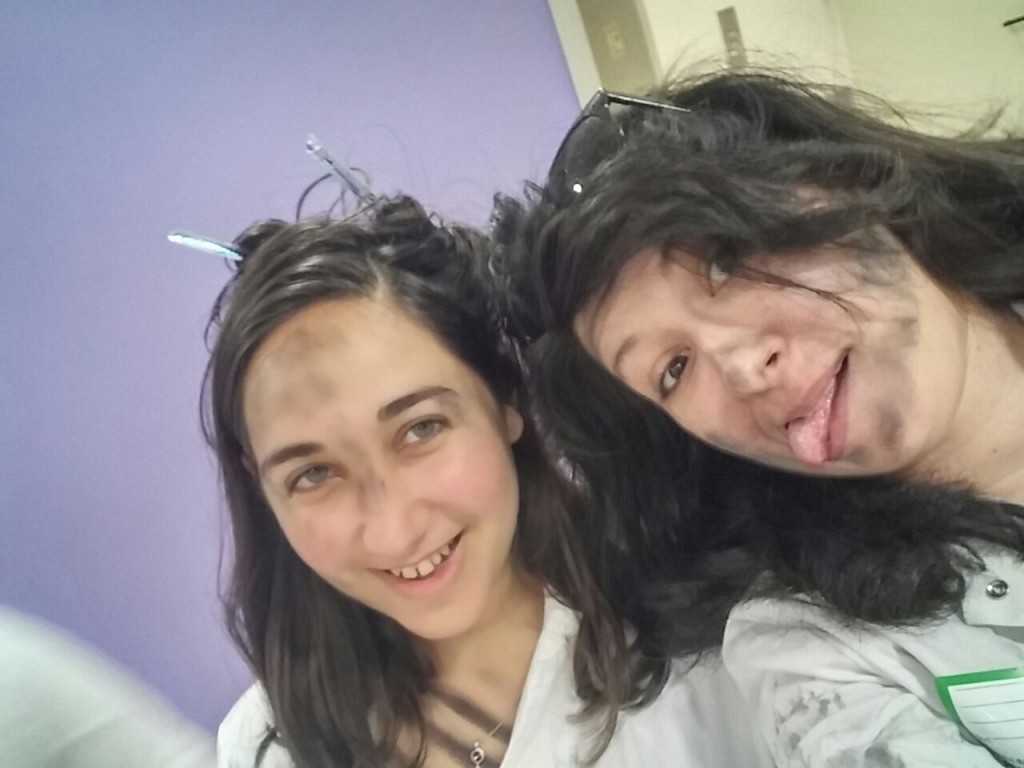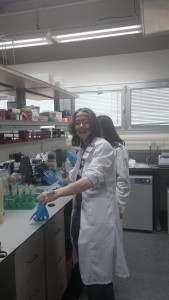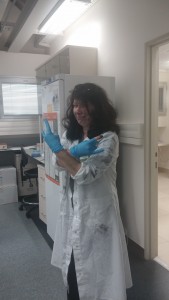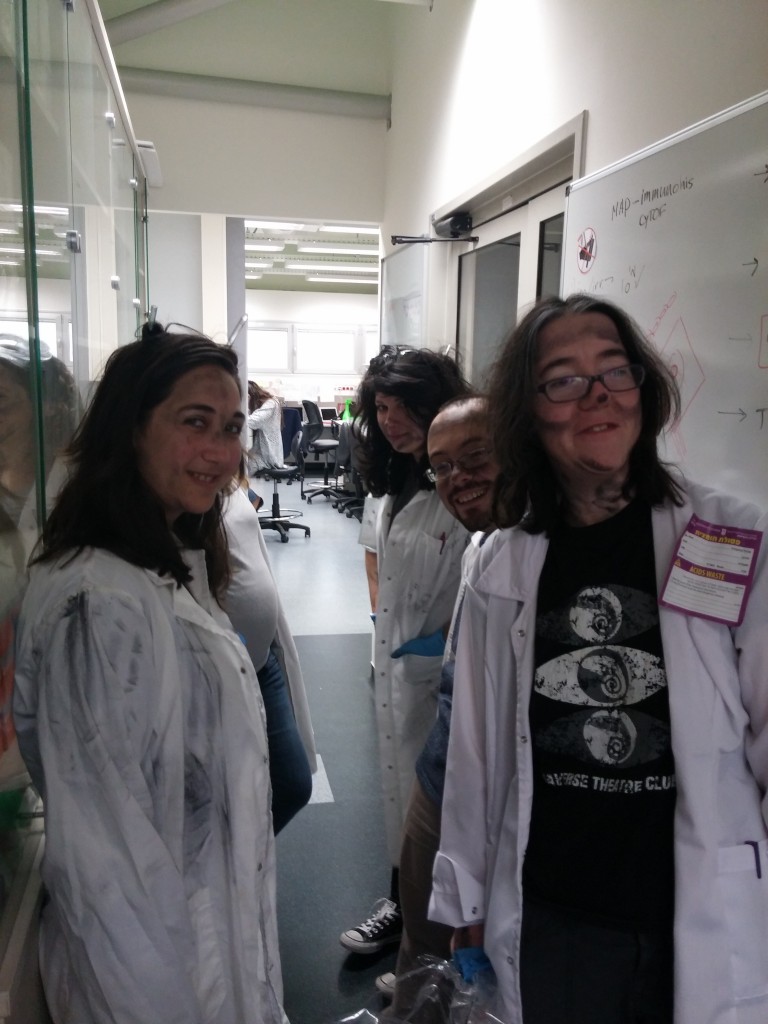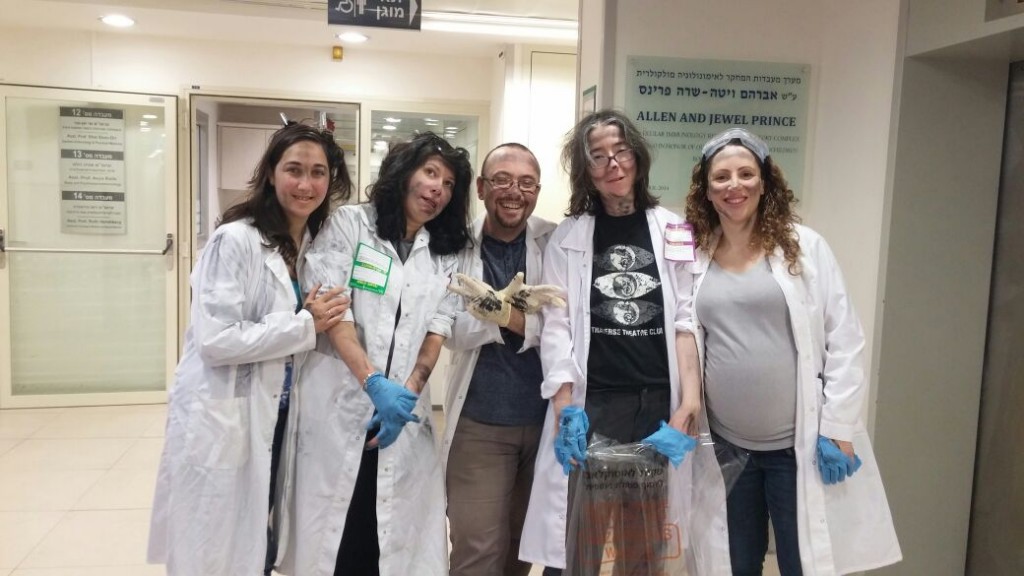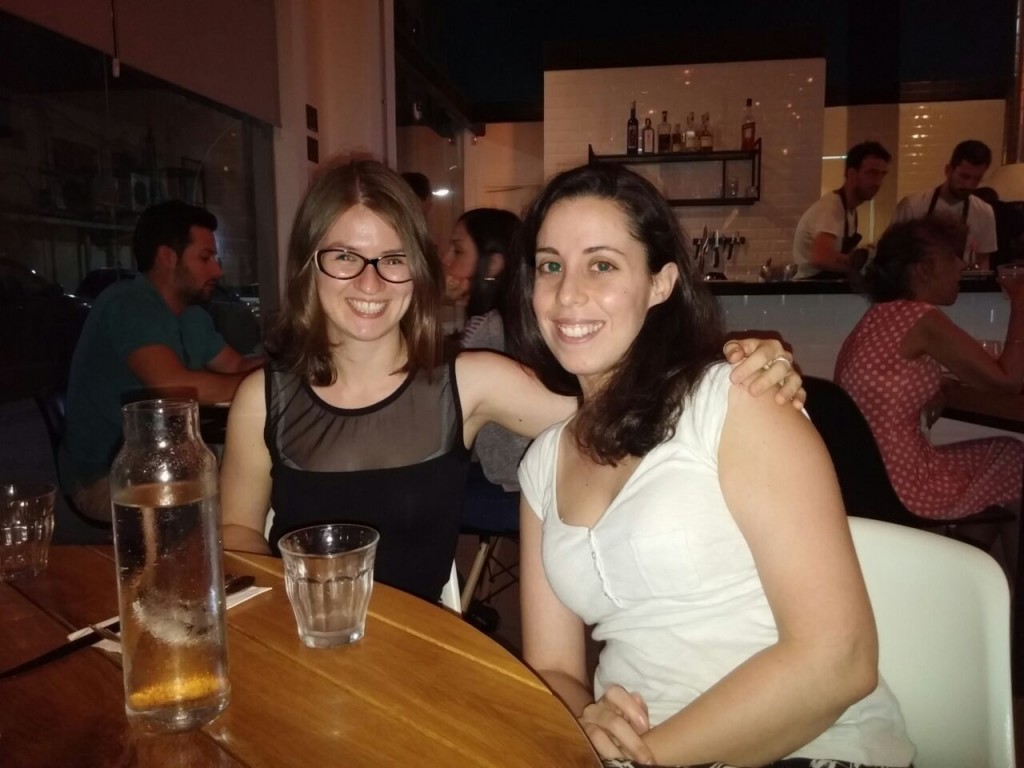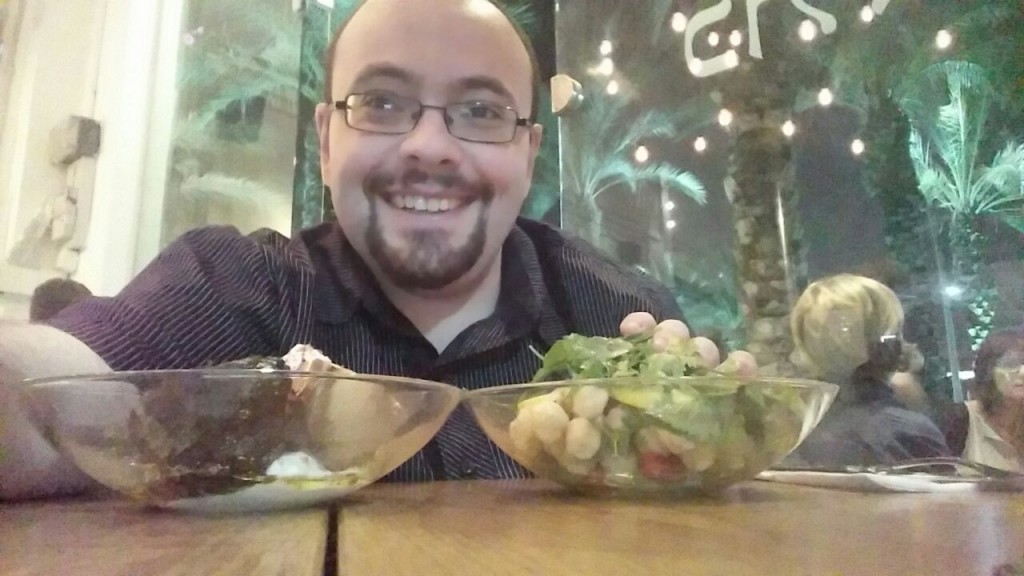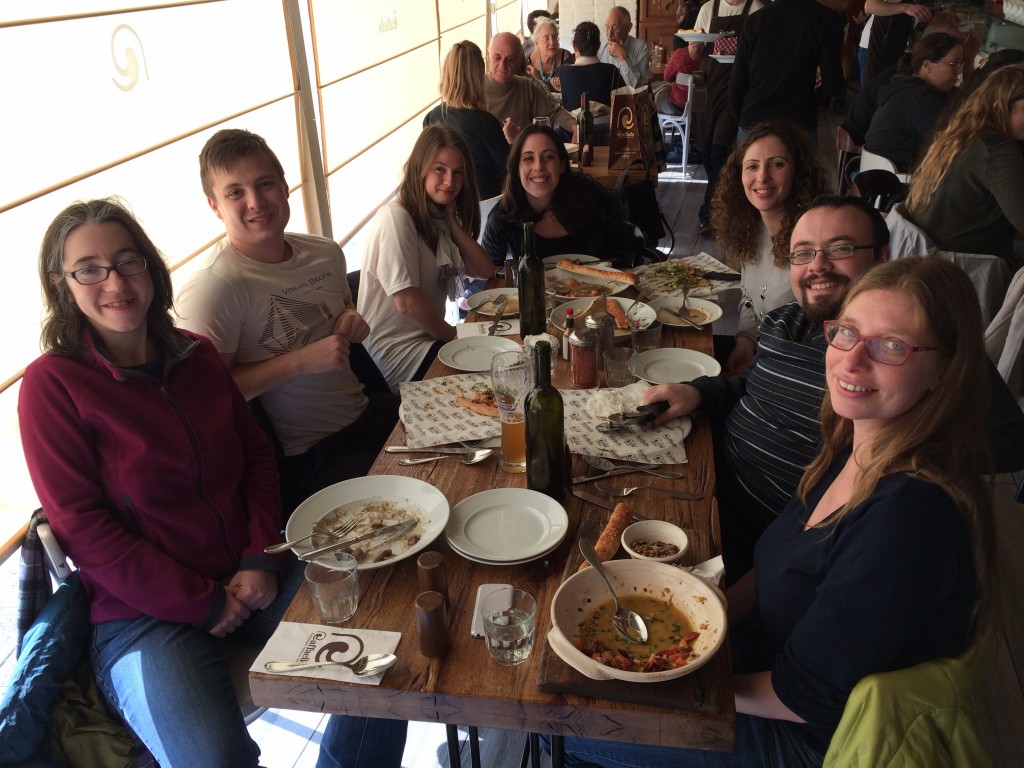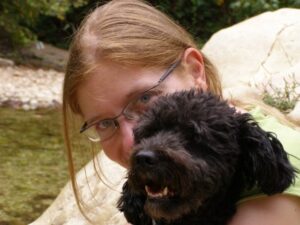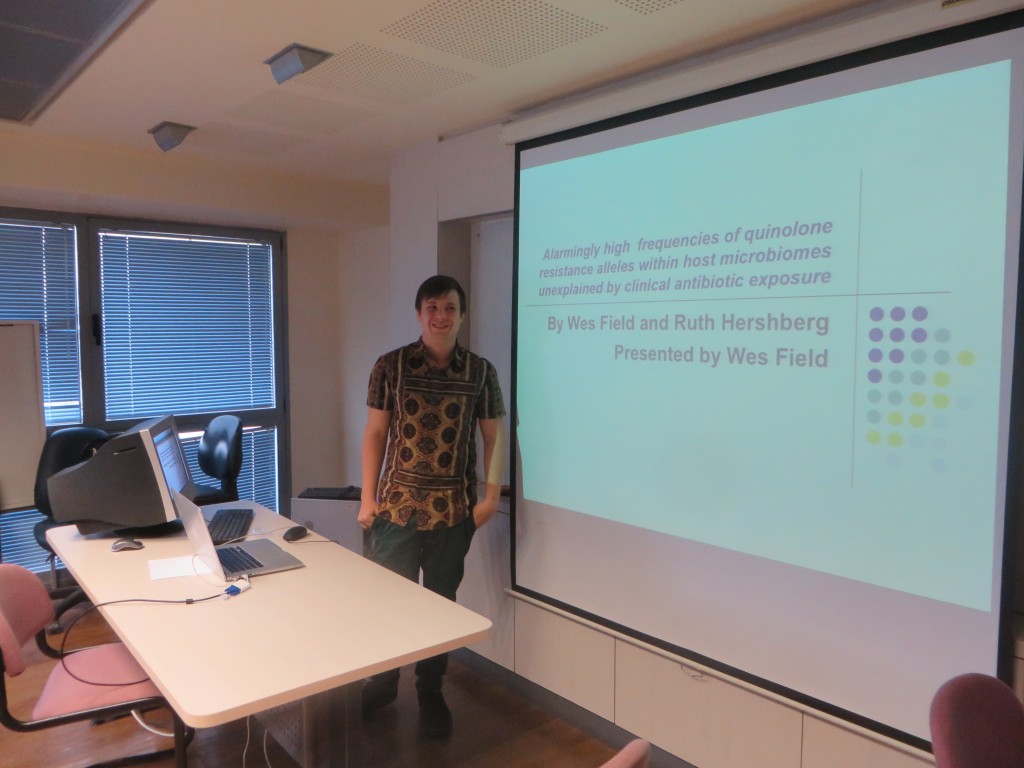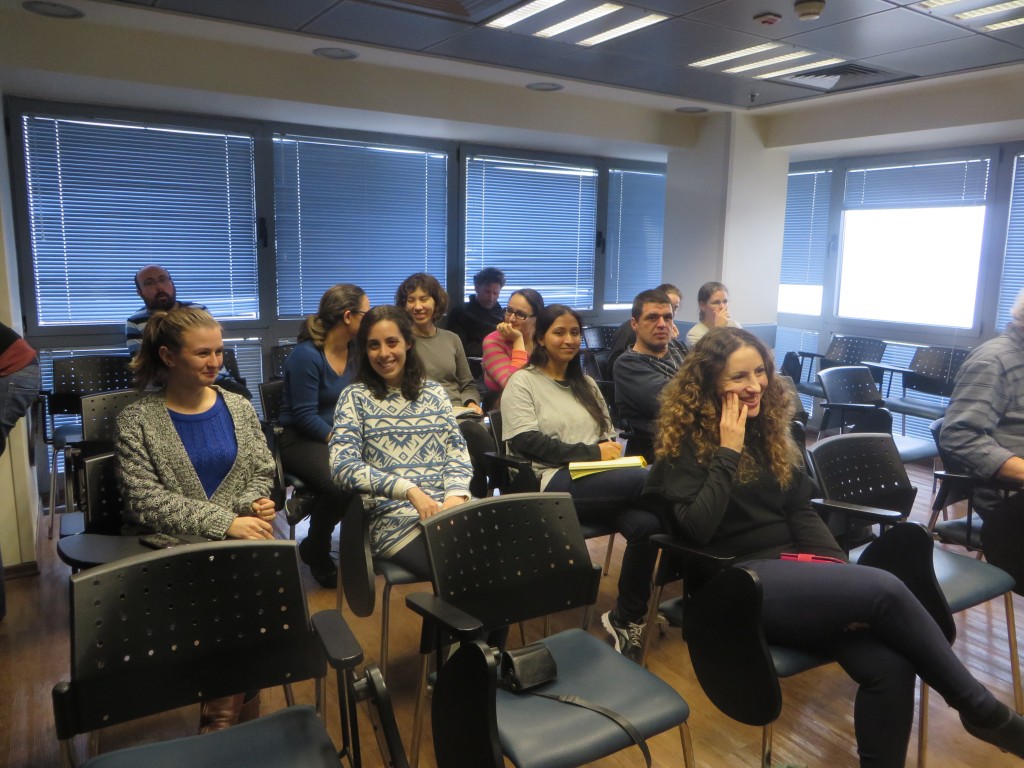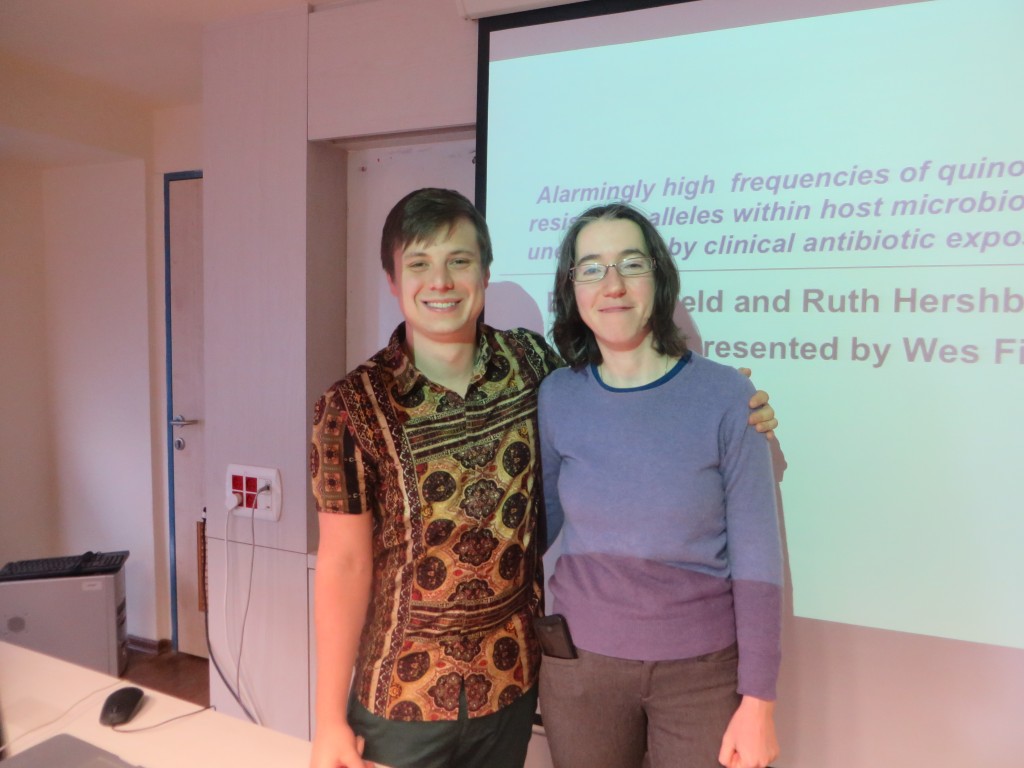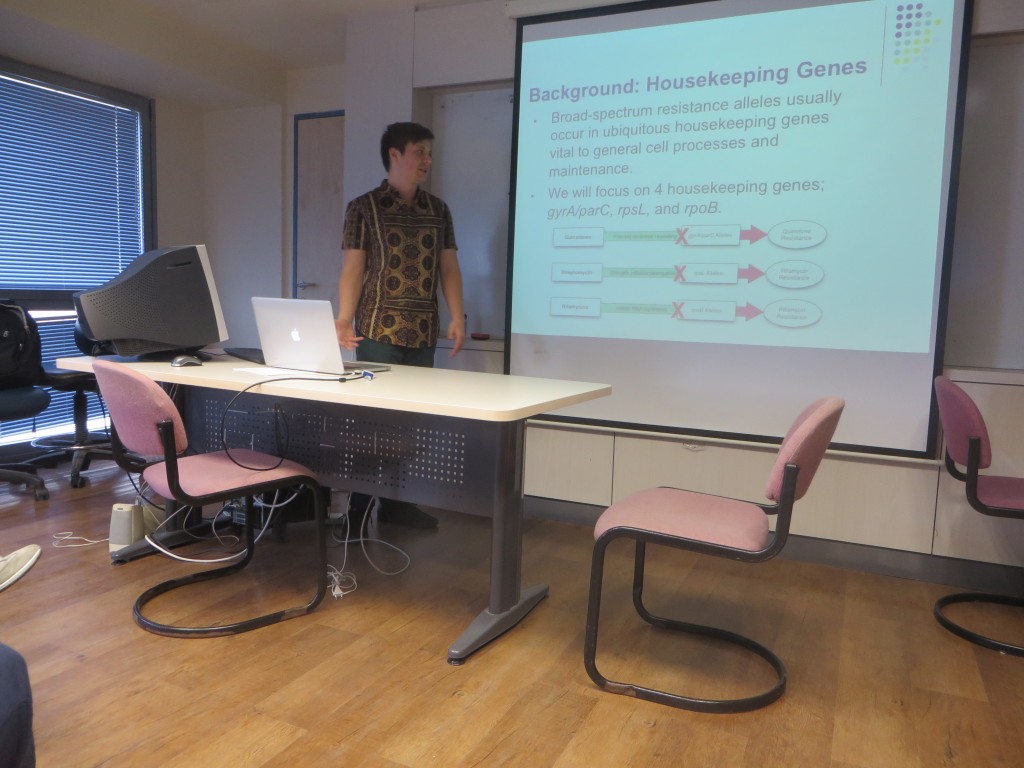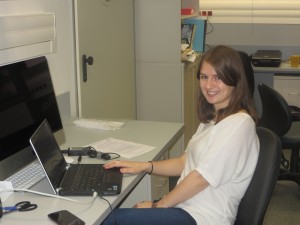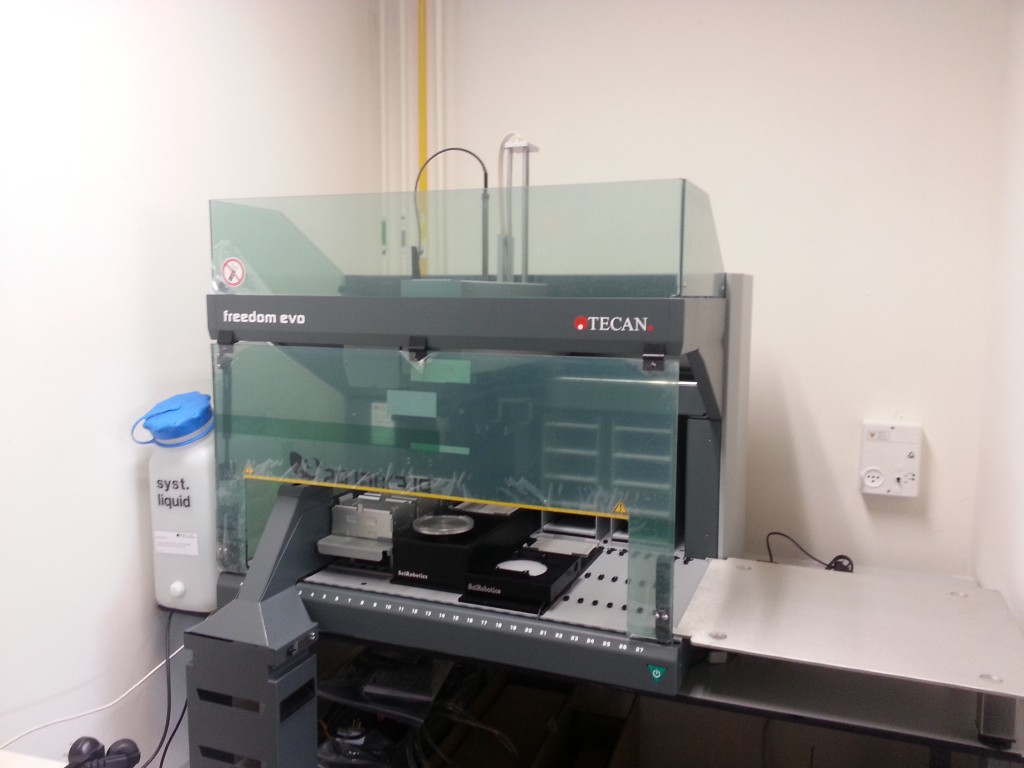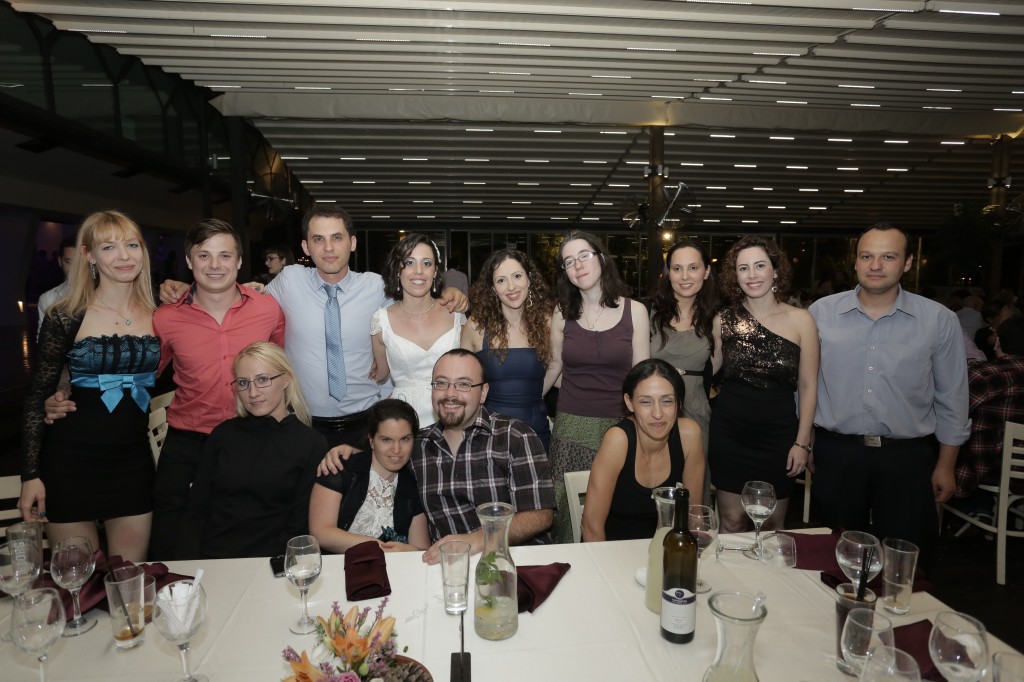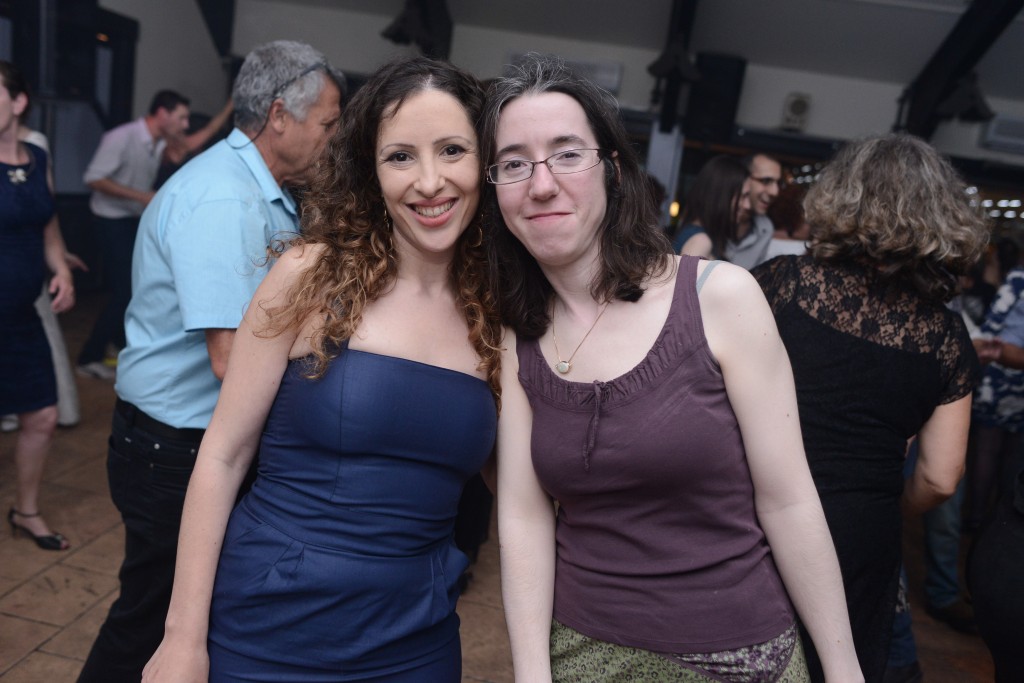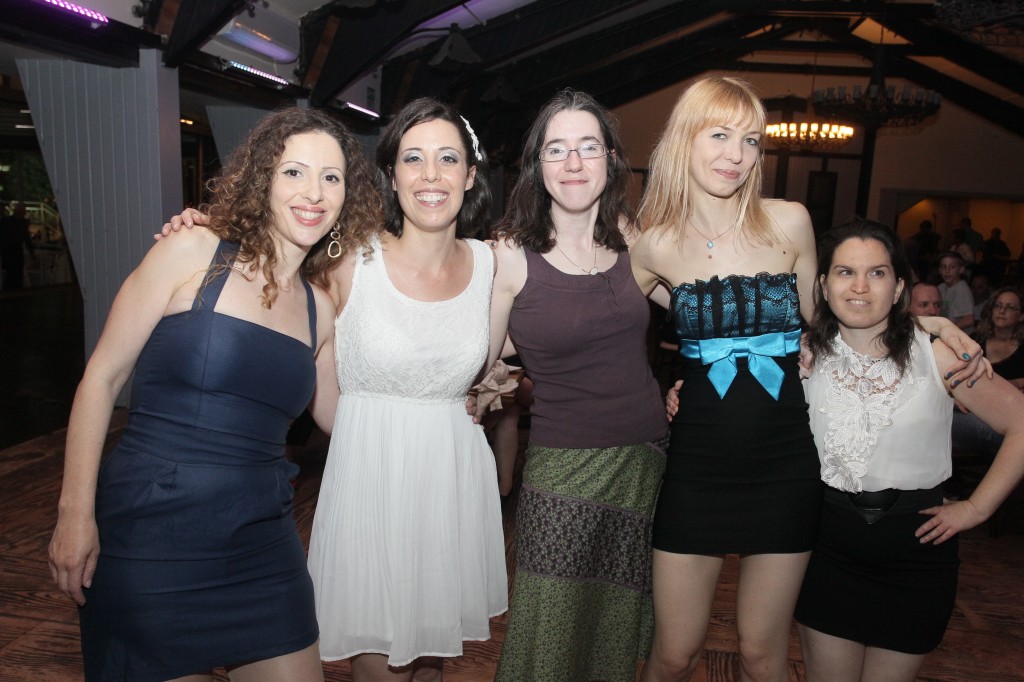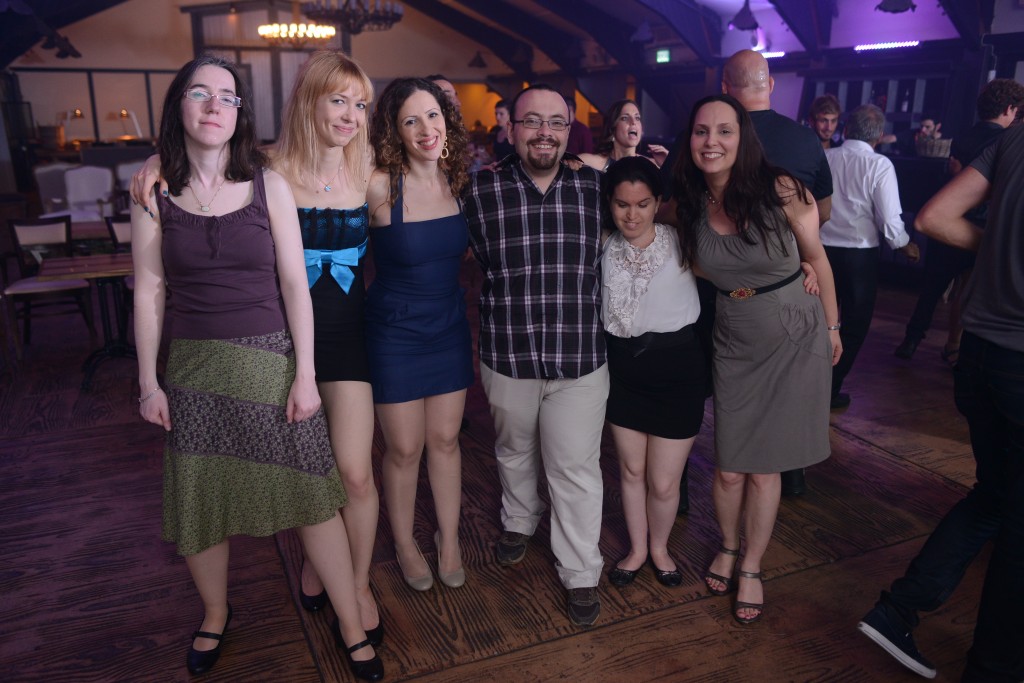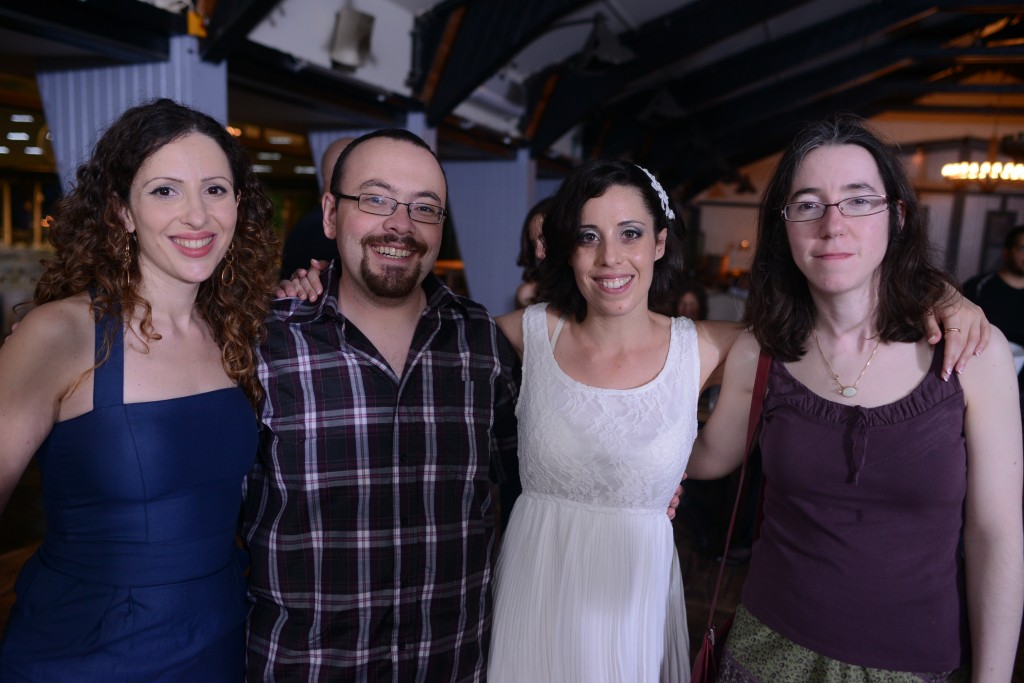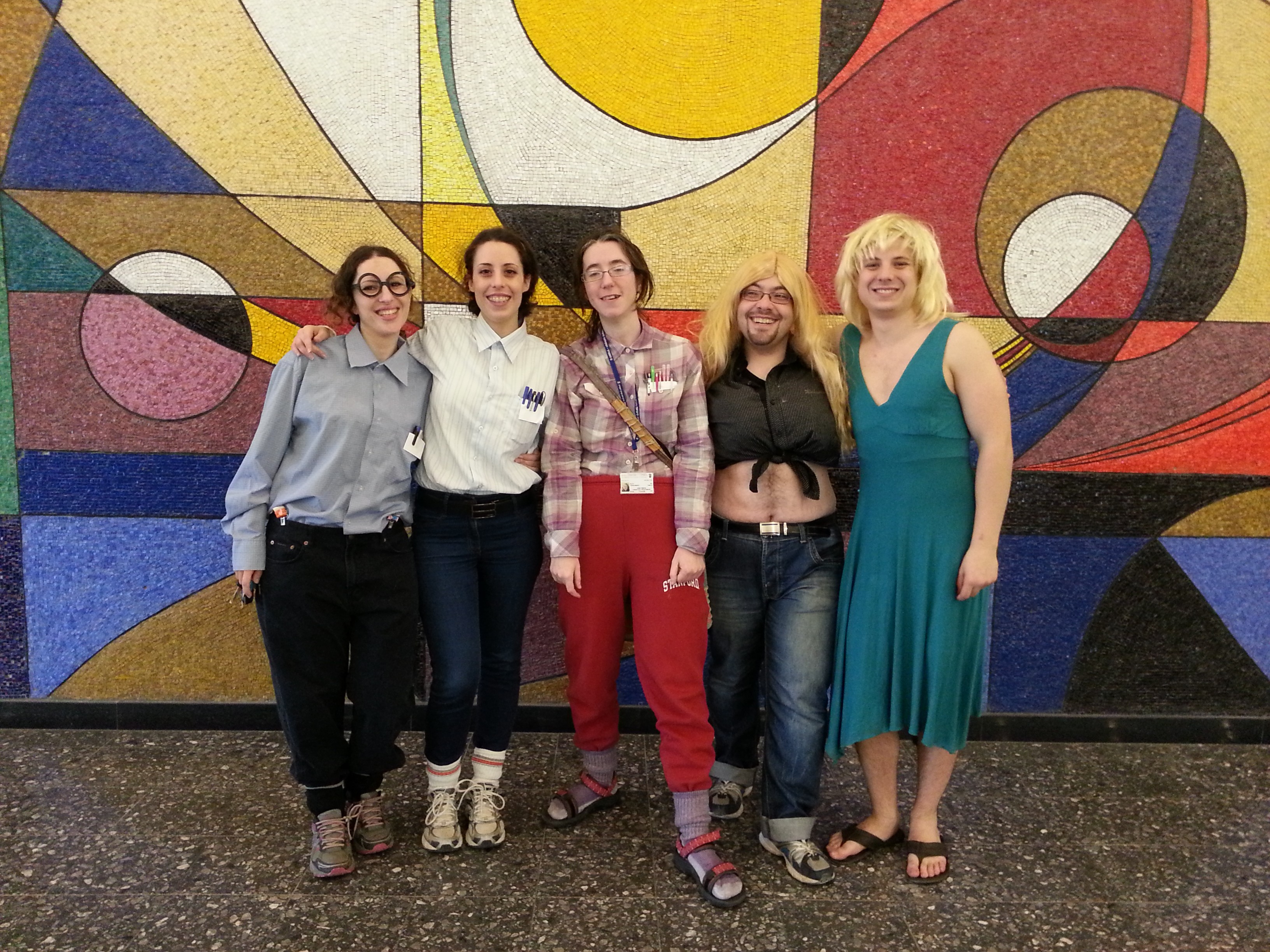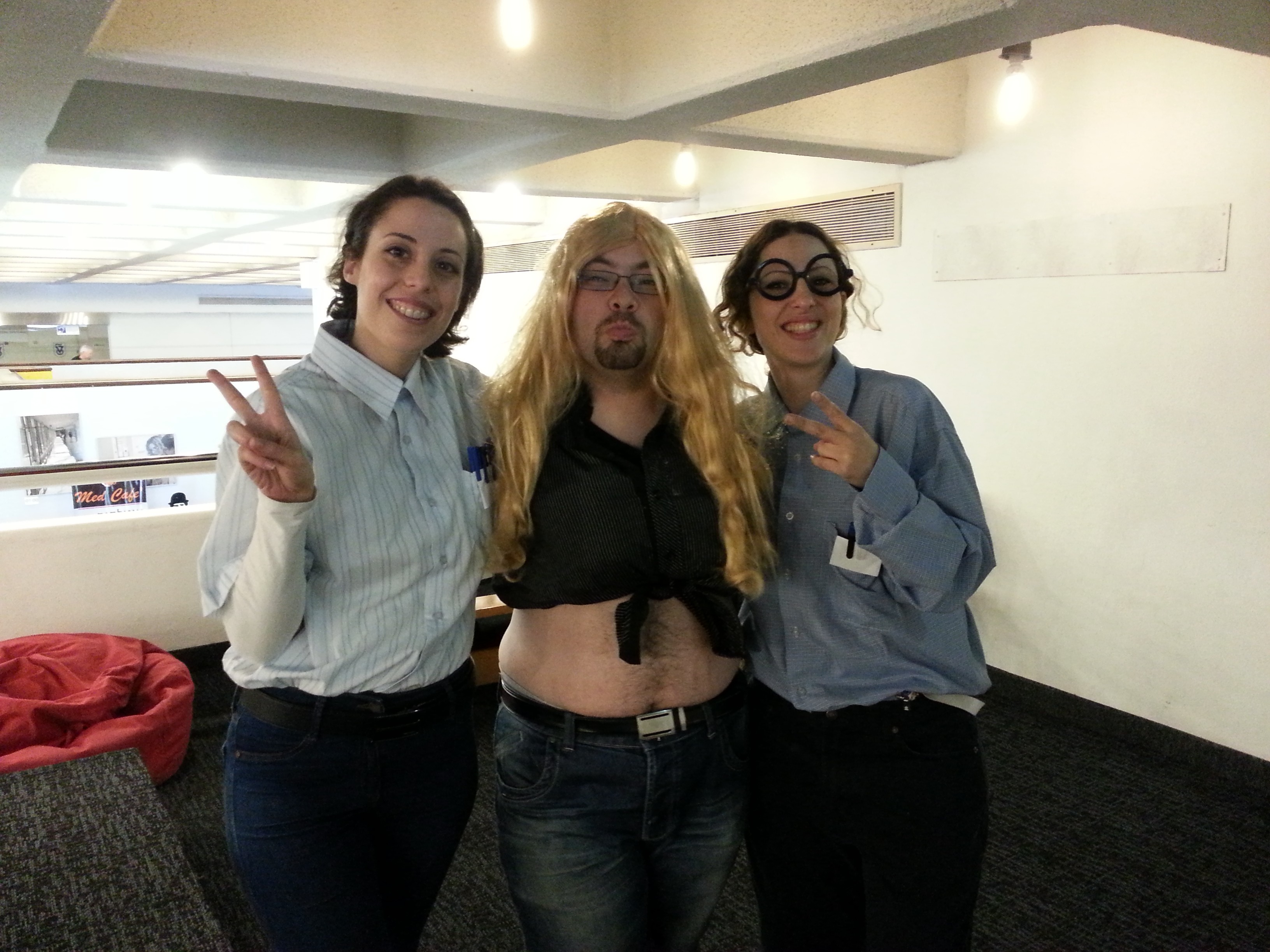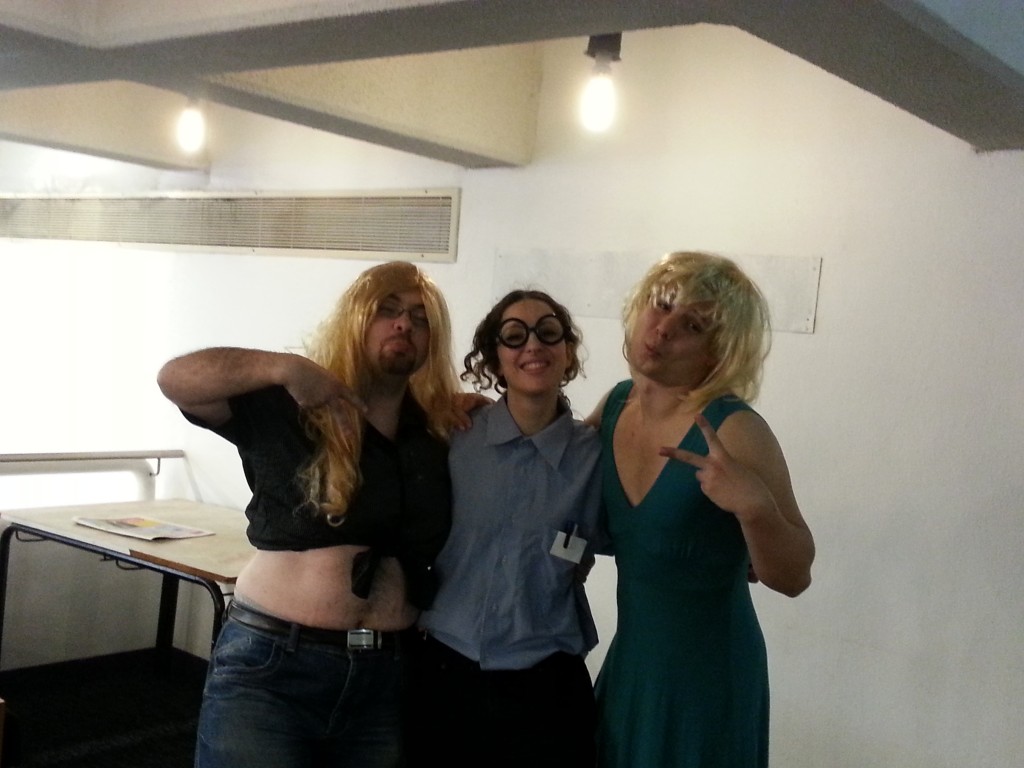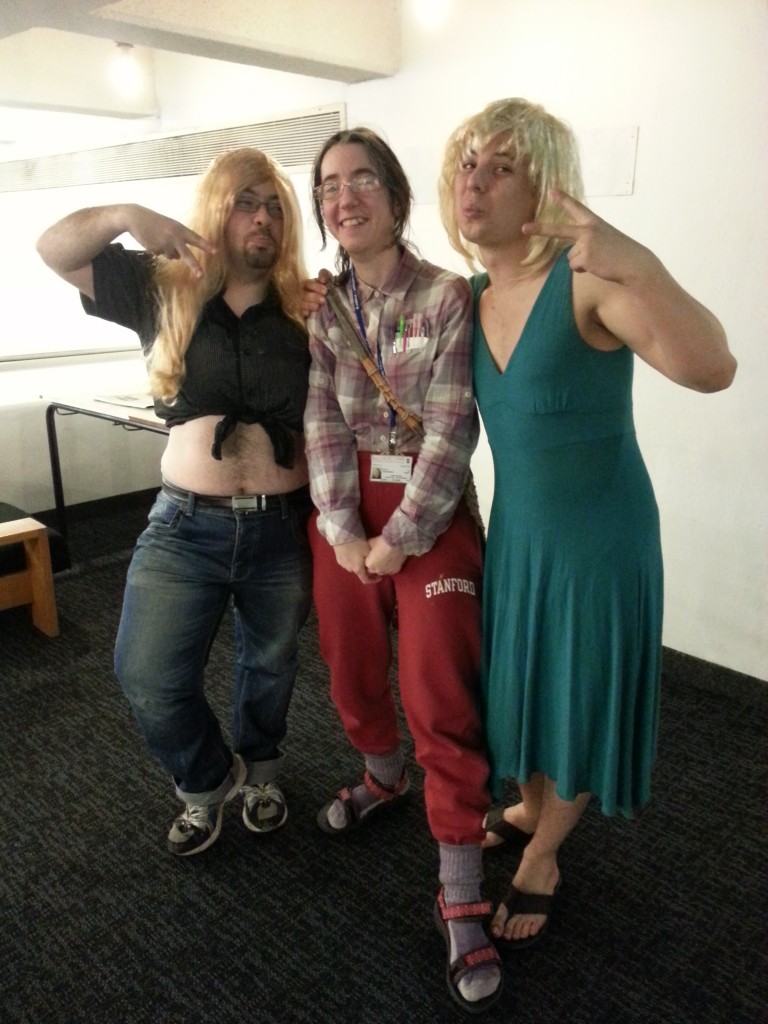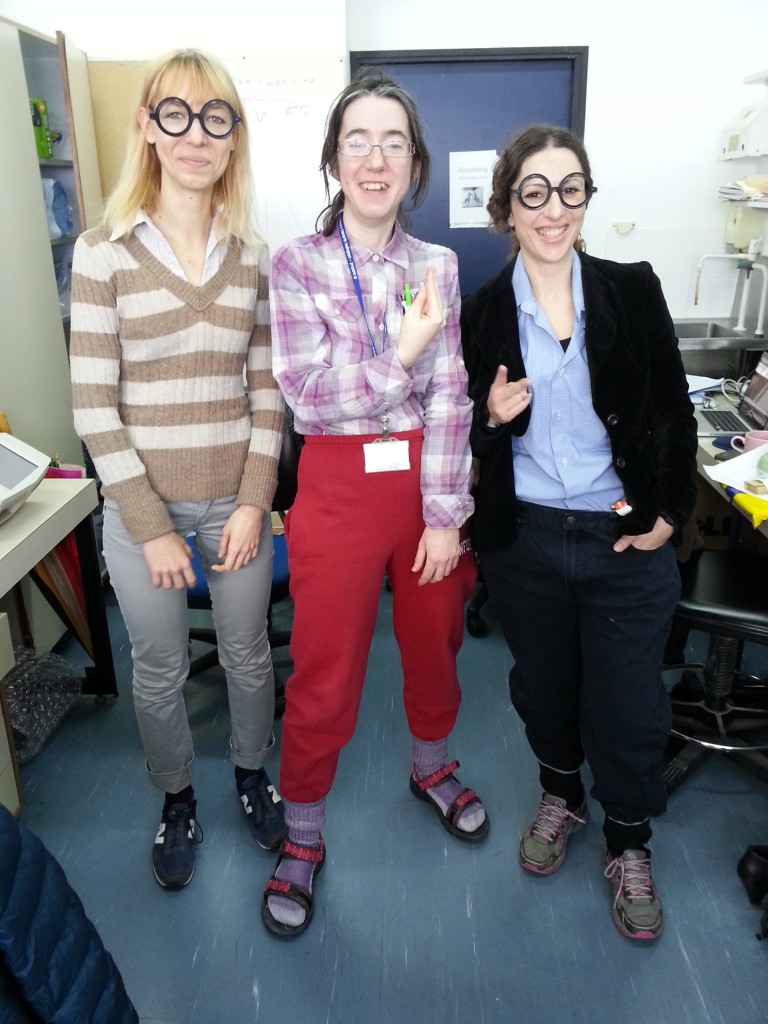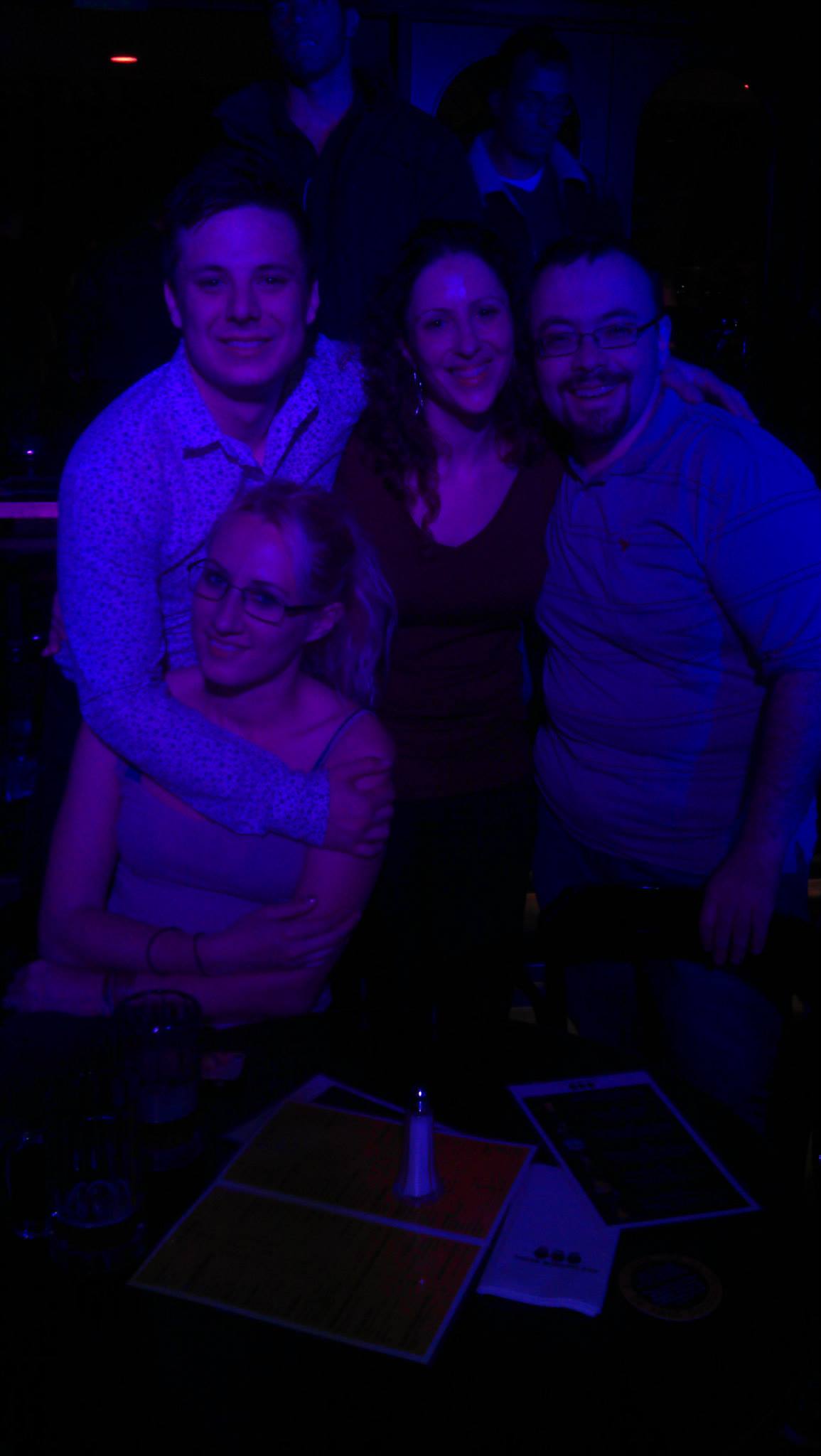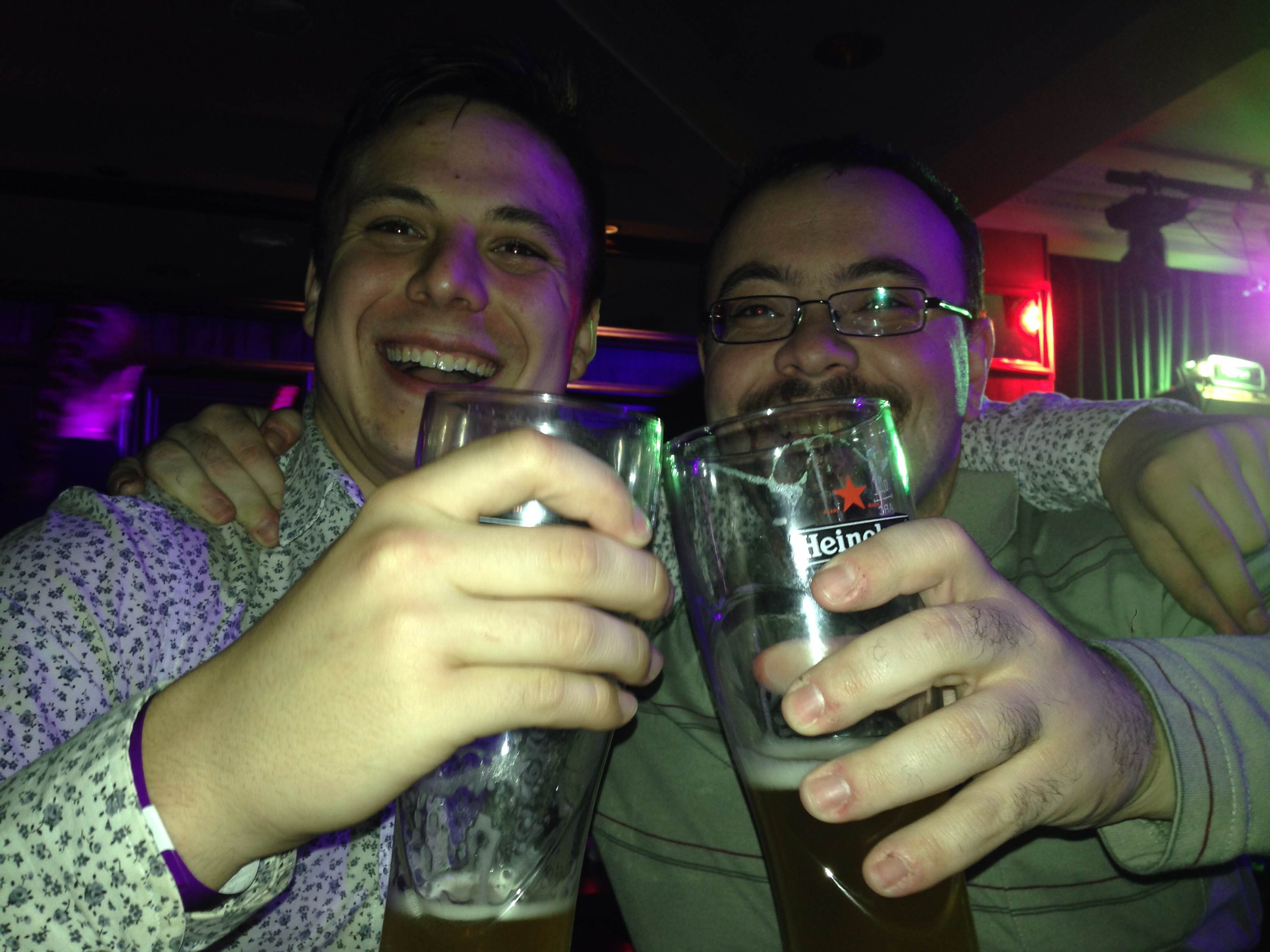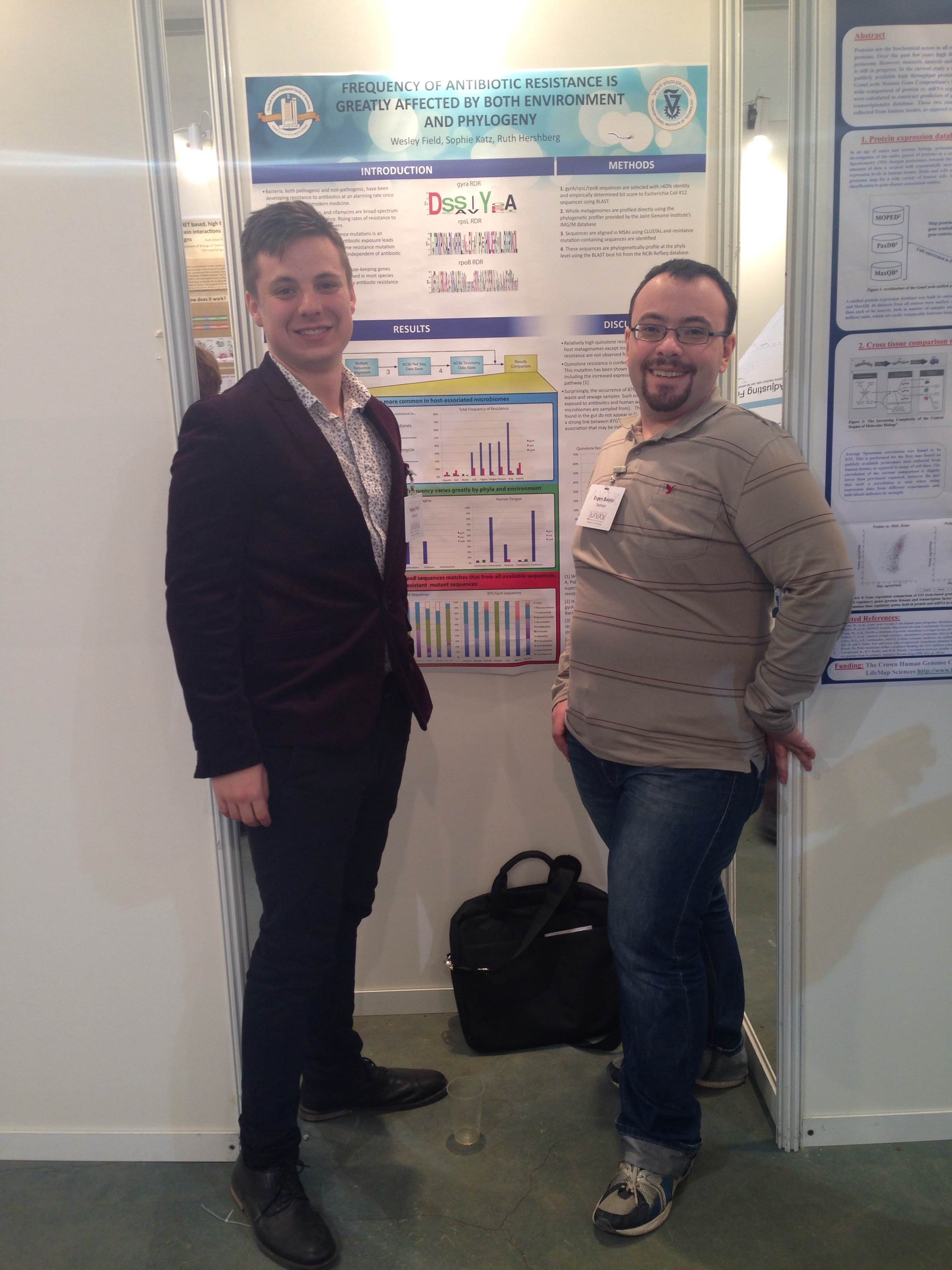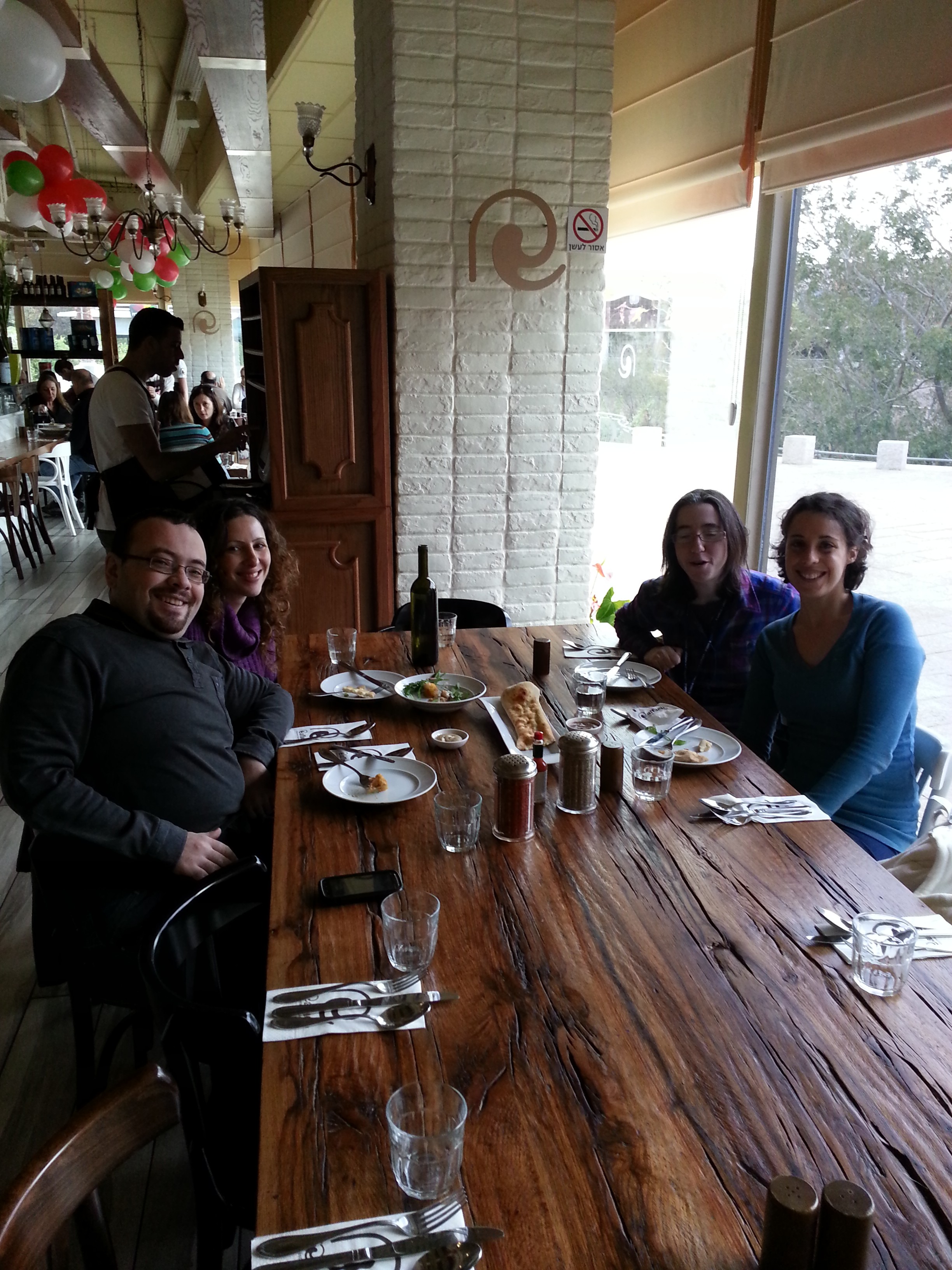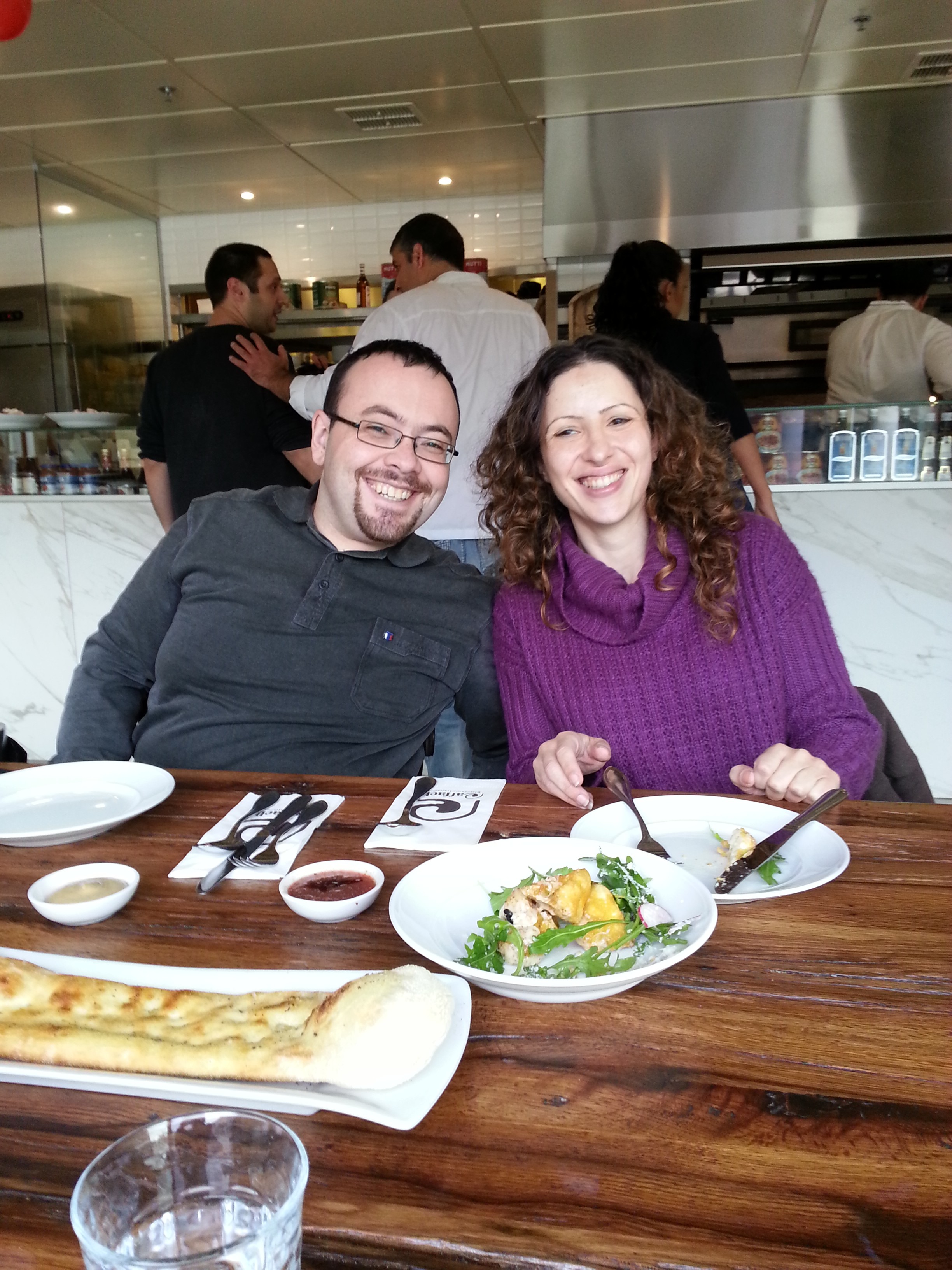November 12, 2017
Introducing the Hershberg lab pets:

Taptap Hershberg

Shlomtzi Hershberg
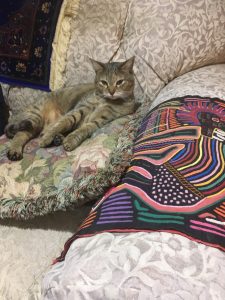
Mitsuko Hershberg

Daisy Katz
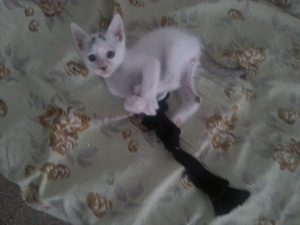
Ketem Bolotin

Luna Yannai

Leo Hilau
October 26, 2017
Sheli successfully defends her thesis.
Congratulations Dr. Ostrow-Galili!
August 25, 2017
Evgeni’s new paper is out in Frontiers in Microbiology. In this paper we show that a very high proportion of genes that are horizontally acquired by a bacterial species are also shared by other closely related species of bacteria. We further show that there exists a large distinct pool of genes that are frequently horizontally acquired and that these genes have distinct qualities that separate them from other horizontally acquired genes that are less frequently transferred.
August 1, 2017
A new review from the lab has just been published in Trends in Genetics. This review summarizes recent research demonstrating that much of adaptation to novel conditions occurs through modifications to genes with central housekeeping functions. Since such genes often serve as the targets of antibiotics, antibiotic-resistance mutations within such genes can often have adaptive effects that are independent of their role in conferring antibiotic resistance.
July 1, 2017
We are very proud of this new paper from out lab that was just published in Molecular Biology and Evolution. The project which was spearheaded by Sarit Avrani, with the help of Evgeni Bolotin and Sophie Katz, addresses E. coli’s amazing ability to survive for very extensive amounts of time in spent media. When E. coli is inoculated into fresh media it grows exponentially until resources start running out. Shortly after it exhausts its resources the population undergoes a rapid period of decline, known as ‘death phase’. However, a small subset of cells can survive this phase and enter a state known as long-term stationary phase (LTSP), in which a constant number of cells can be maintained for decades, due to recycling of dead cells by living ones. We initiated five populations of E. coli, which we have now maintained under LTSP for over a year and a half. We have been sampling cells periodically, so that we can follow their numbers with time, allowing us to determine that following 11 days they entered LTSP and that they have been maintaining viability ever since. In this paper, we used whole genome sequencing to study the dynamics of adaptation during the first four months of adaptation to LTSP. This resulted in a number of striking findings. We found that genetic adaptation is involved in allowing cells to survive death phase and enter LTSP. Adaptation to LTSP is extremely convergent across the independently evolving populations and selection appears to be very strong for the acquisition of specific adaptive mutations. We further found that cells that adapt to survive under LTSP tend to greatly reduce their ability to grow in fresh media, both due to the acquisition of adaptive mutations displaying antagonistic pleiotropy and due to mutation accumulation. Perhaps contrary to expectations we found that adaptation to resource exhaustion is not limited by mutational input. This manifests in the fact that we see a very high rate of mutation accumulation, in the fact that adaptation occurs via soft, rather than hard sweeps and in the fact that bacteria can adapt under LTSP in a highly precise temporal fashion, through fluctuations in allele frequencies. Combined our results highlight the amazing flexibility populations of bacteria have in adapting
April 1, 2017
Sarit Avrani leaves us to establish her own independent lab at the University of Haifa.
Good luck Sarit!
March 17, 2017
Congratulations to Sheli on the birth of her son.
March 1, 2017
Sabrin Hailu joins the lab

13 October, 2016 –
Evgeni’s new paper is out in Scientific Reports. In this paper we show that gene loss occurs in a fairly clocklike and mostly within a pool of genes that is less constrained to begin with. Thus, it appears that the majority of gene loss is due to stochastic removal of gene functions that to begin with are not that important, rather than due to changes in the necessity of genes, driven by environmental shifts.
June 6, 2016 –
Congratulations to Sophie on the birth of her son.
May 6, 2016 – Evgeni’s Wedding
Congratulations Evgeni and Chen!
May 3, 2016
New paper published in the journal Microbiome. One key aim of microbiome studies is to characterize the genomic diversity of prokaryotic species present within environments of interest. In so doing it is often useful to use a marker gene that is present in a wide variety of bacterial taxa. In a collaboration with Yemin Lan, and Gail Rosen from Drexel University we quantified the utility of using different universally or nearly universally present gene markers for estimating genome-wide level of bacterial phylogenetic relatedness. We find that while the most commonly used slowly evolving 16S rRNA gene is very good at distinguishing levels of relatedness for distantly related bacteria, it is far less useful for distinguishing between closely related strains. When one wants to classify relatedness among closely related strains it is much better to use those marker genes that are most quickly evolving within a species of interest.
May 1, 2016
Sheli’s New paper is out in Genome Biology and Evolution. In this paper we showed that cancer genes tend to be much more functionally central and much more constrained in evolution than genes contributing to other genetic disorders. We further show that genes that contribute to hereditary predisposition to cancer are as functionally central as other cancer genes, but are only as evolutionarily constrained as genes contributing to hereditary non-cancer disorders. Our results combine indicate that cancer as a disease of the most basic functions tends to occur through mutations to genes that are highly functionally central. Because such genes are often also evolutionarily constrained, they cannot be modified in a hereditary manner. The ability of cancer to occur through somatic rather than hereditary mutations is what enables it to affect genes that are both functionally central and evolutionarily constrained and become a disease of such basic functions.
March 22, 2016
Purim: Our lab has exploded!
February 23, 2016
Sheli’s new paper is out. In this paper we collaborated with Molecular Pathologist Dov Hershkovitz (extra perks of the collaboration included a tour of his specimen buckets which will not be easily forgotten). We examined the distribution of KRAS driver substitutions among patients with lung, colon and pancreatic adenocarcinomas. We showed that both differences in mutational biases and differences in natural selection contribute to variation in the distribution of KRAS driver substitutions between tumor types. We identified specific KRAS driver substitutions that are more favored either across all tumor types or only in specific types of tumors. Finally, we found significant associations between the presence of KRAS substitutions that are more favored only in a specific type of tumor and worse clinical outcomes in patients with that tumor type.
January 10, 2016
Congratulations to Sarit on the birth of her son.
October 1, 2015
Adi Yannai and Olga (Oli) Oks join the lab.
September 1, 2015
Ruth’s Review “Mutation—The Engine of Evolution: Studying Mutation and Its Role in the Evolution of Bacteria” is out
July 10, 2015
Evgeni’s paper is out! Evgeni characterized the pangenomes of a large number of bacterial species. This allowed him to demonstrate that clonal pathogen lineages that are characterized by very low gene-sequence diversity and very low levels of horizontal gene gain evolve predominantly via gene loss. This results have clear implications for the study of clonal pathogens such as Mycobacterium tuberculosis and Yersina pestis.
July 1, 2015
Lab dinner to celebrate Sheli, Evgeni and Sarit’s birthdays. Happy birthday!
May 26, 2015
Wes’ paper is out! Wes looked at the frequency with which resistance alleles occurring within the house-keeping target genes of antibiotics segregate within natural bacterial populations. He found that some resistance alleles segregate at alarmingly high frequencies. In particular, one quinolone resistance allele that we have previously shown is adaptive when E. coli are starved segregates at extremely high frequencies particularly within the bodies of humans and other animals. These high segregation frequencies seem to be independent of antibiotic exposure. The paper just came out as an advanced online publication on the GBE website. It can be found here.
April 9, 2015
New paper published! In collaboration with Erin Reichenberger, Gail Rosen and Uri Hershberg from Drexel University we have shown that while there is a clear influence of phylogeny on nucleotide content in prokaryotes, environmental selection also seems to influence this trait. Our paper just came out as an advanced online publication on the GBE website. The paper can be found here.
March 10, 2015
Our first student to graduate! Wesley Field successfully defends his MSc. Thesis and leaves us to go work in Recombine in NYC. Best of luck!
February 25, 2015
Goodbye lunch for Wesley who is about to graduate. Also, celebrating Evgeni’s successful PhD Pre-exam, Sheli being awarded the Jacobs excellence fellowship and Sarit being awarded a Postdoc fellowship.
February 23, 2015
Evgeni Successfully passes his PhD Pre-exam and is now officially a PhD student. Congratulations!
February 1, 2015
Dr. Sarit Avrani joins the lab as a Postdoctoral Fellow
February 1, 2015
Sheli is awarded the Jacobes Excellence Fellowship for her paper. Congratulations!
January 28, 2015
Dr. Sophia Katz is promoted to adjunct lecturer. Congratulations!
January 19, 2015
Wes gives his MSc thesis lecture.
October 1, 2014
Michal Savkin joins the lab
May 26, 2014
Move to our new and permanent lab space begins. TECAN Freedom Evo Robot is installed in the new space.
May 21, 2014 – Sheli’s Wedding
Congratulations Sheli and Ben!
Sheli Successfully defends her Pre-doc proposal and is now officially a PhD student. Congratulations Sheli!
Purim 2014, Beauty and the Geek
March 6, 2014
The lab’s first foray into Cancer evolution is published in PLoS Genetics
Ostrow SL, Barshir R, DeGregori J, Yeger-Lotem E and Hershberg R (2014) Cancer evolution is associated with pervasive positive selection on globally expressed genes. PLoS Genetics. 10(3): e1004239
February 25-26, 2014 – Faculty retreat, Nazareth, Israel
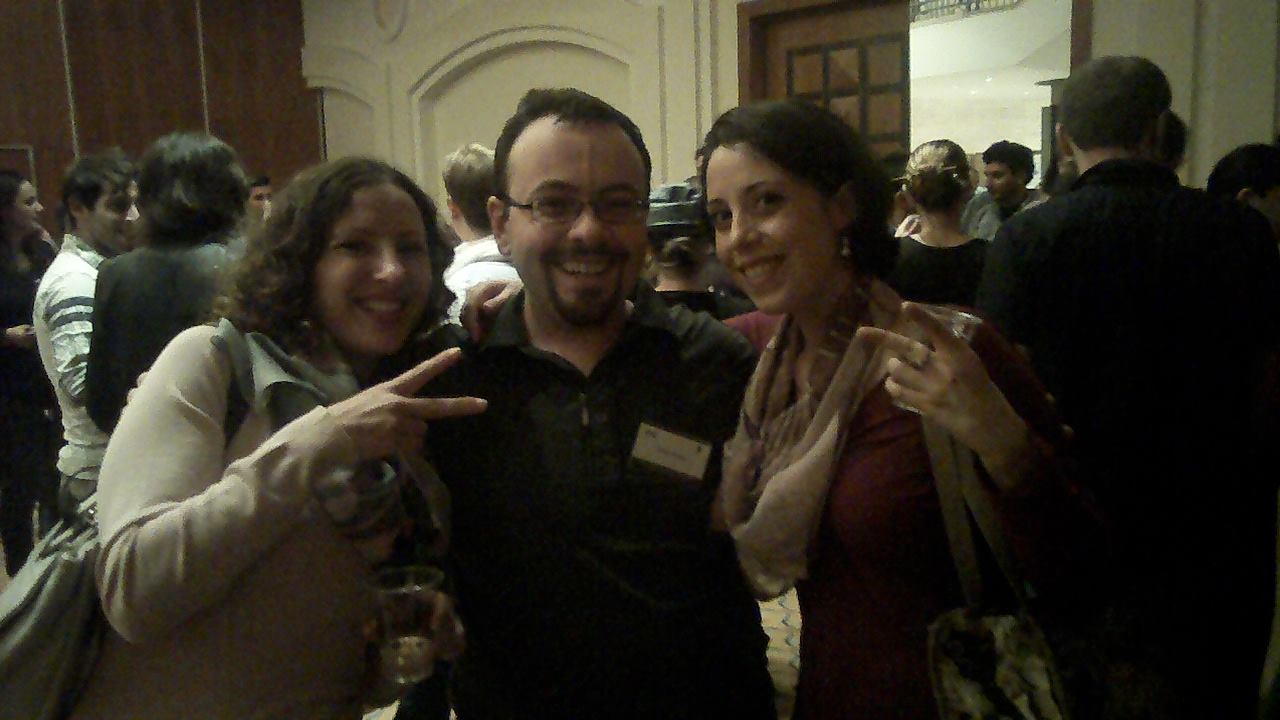
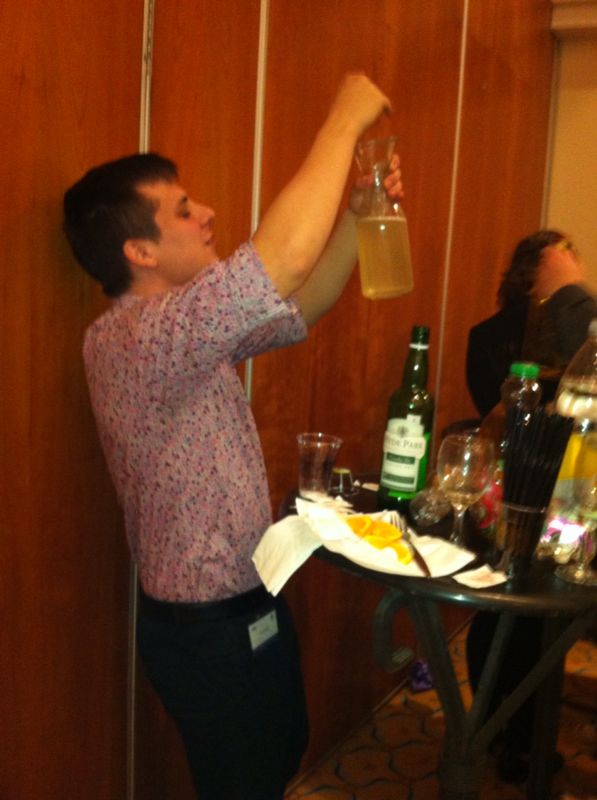
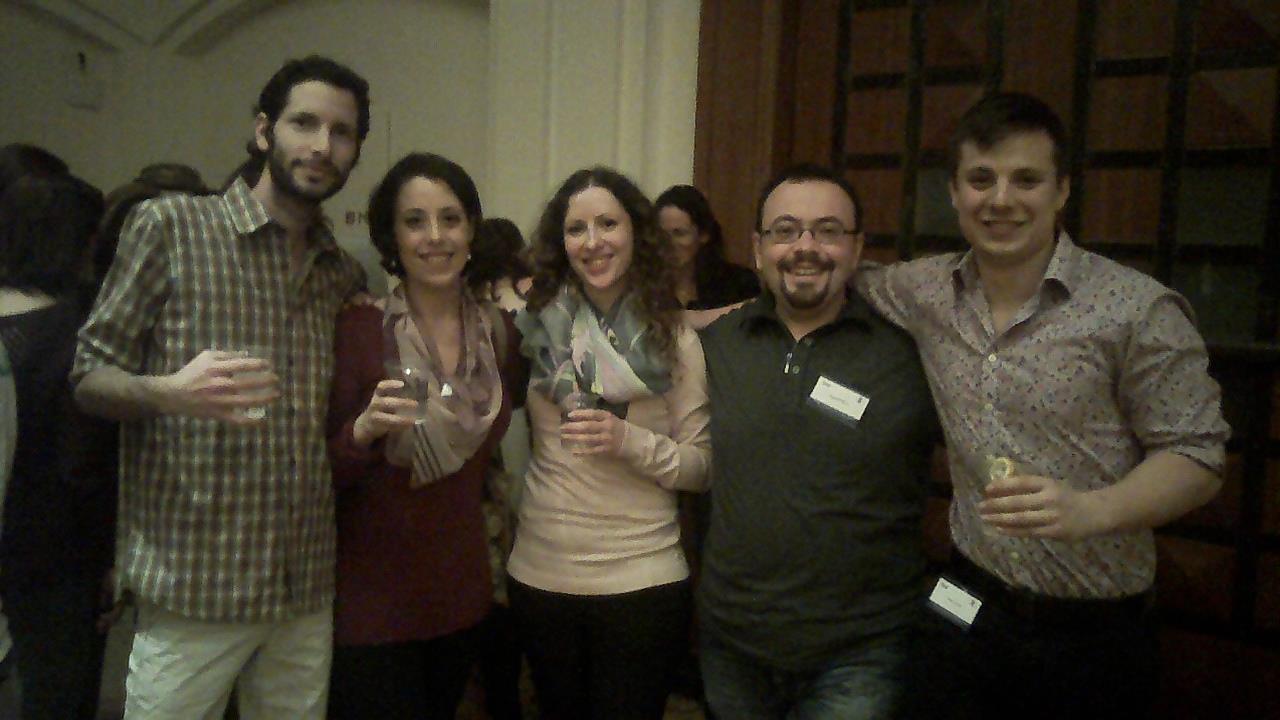 February 10-13, ILANIT conference, Eilat, Israel
February 10-13, ILANIT conference, Eilat, Israel
February 3, 2014
Celebrating the acceptance of Sheli and Ruti’s paper to PLoS Genetics (To be published March 6th)
POGO-DB – a database of Pairwise-comparisons Of Genomes and conserved Orthologous genes is published in the Nucleic Acids Research Database Issue. This work was carried out in Collaboration with Yemin Lan, J. Calvin Morrison and Gail Rosen from Drexel University
November 14, 2013
1st paper from the lab published in PLoS Genetics!
Katz S and Hershberg R (2013) Elevated mutagenesis does not explain the increased frequency of antibiotic resistant mutants in starved aging colonies. PLoS Genetics. 9(11): e1003968.
March 1st, 2013
Evgeni Bolotin and Wesley Field join lab.
September 1st 2012
Sheli Ostrow joins lab
March 14, 2012
Presenting Dr. Sophie Katz.
We are proud to announce that Sophie Katz received her PhD today.
March 1st, 2012
A lab is born!

